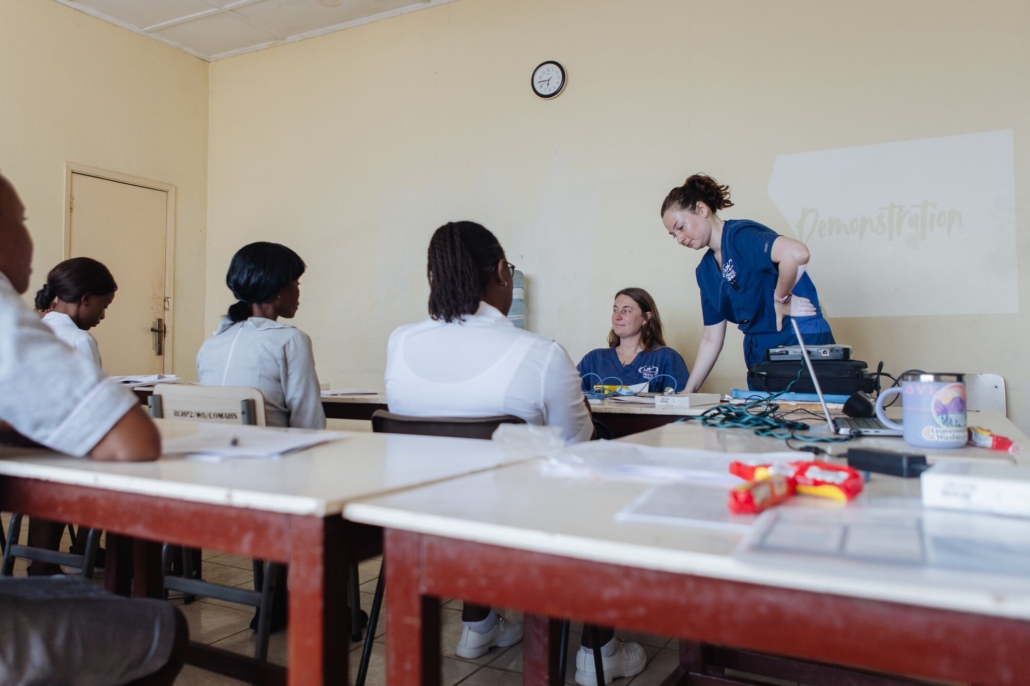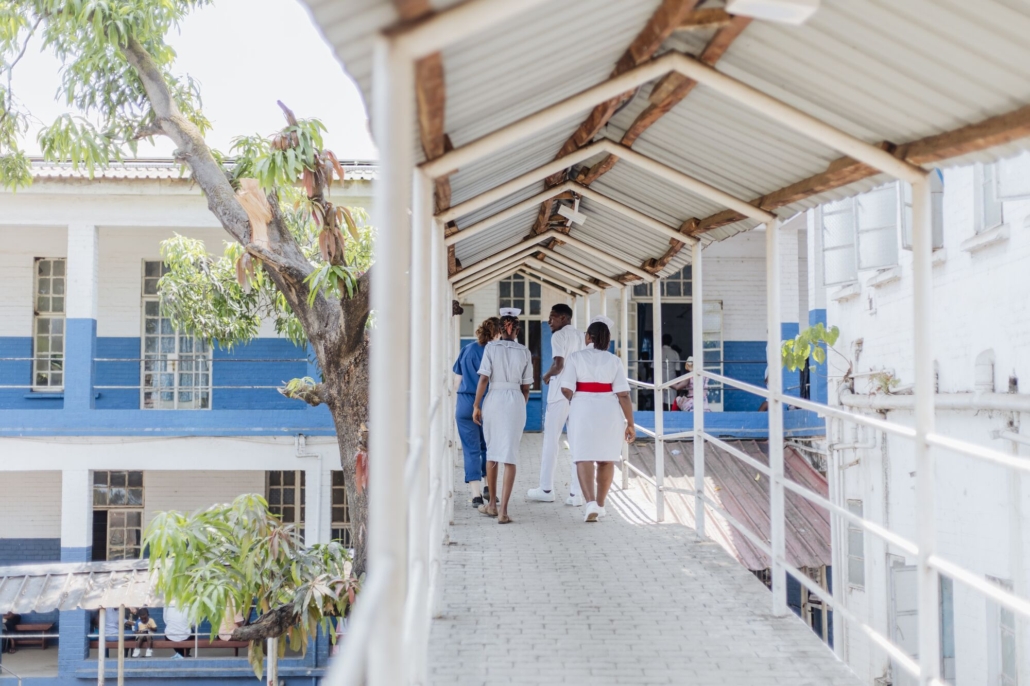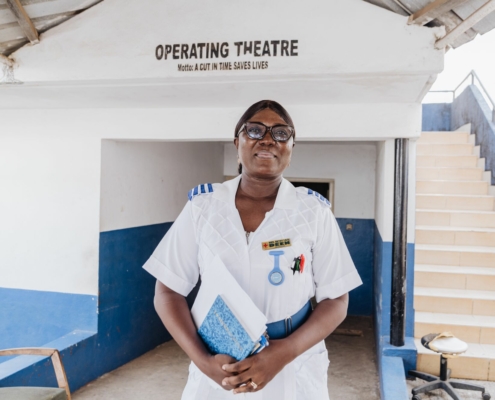Passing the Torch: The Lasting Impact of Nurse Mentorship With Mercy Ships
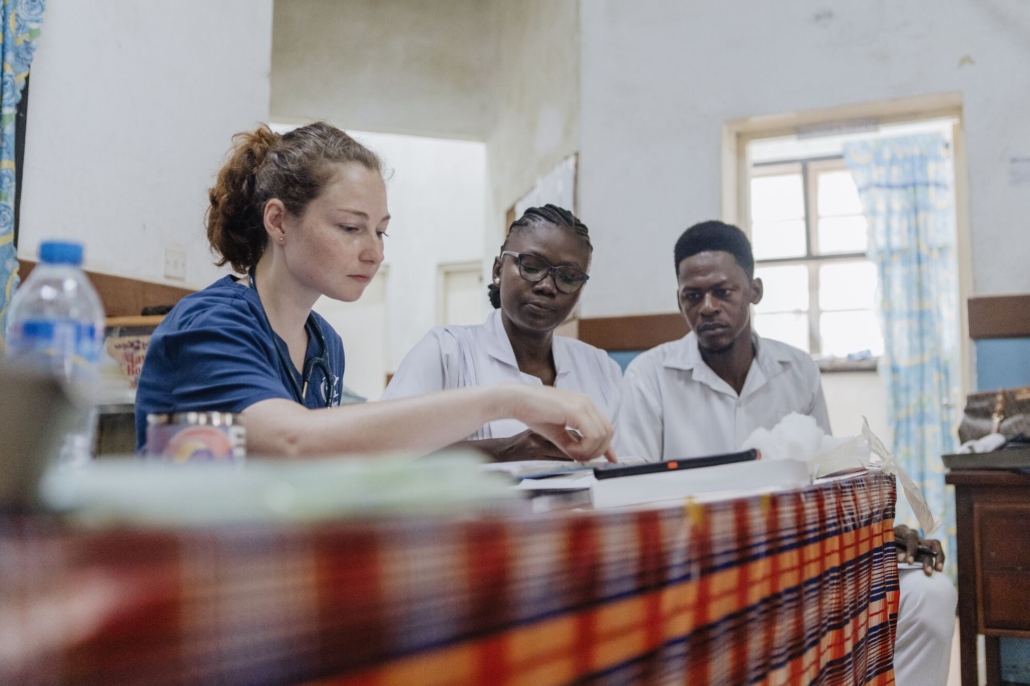
Katie Henderson, Multidisciplinary Team Nurse, at work mentoring in the ward of Connaught Hospital.
In a quiet room inside Freetown’s Connaught Hospital, nurse mentor Katie Henderson is leading a training session with a small group of nurses. It’s not just another training; it’s the steady unfolding of a long-term vision: building up Sierra Leone’s nursing workforce through partnership, mentorship, and hands-on education.
Mercy Ships helped introduce this nurse mentorship program at the country’s largest public hospital through a collaborative partnership with the Sierra Leone Ministry of Health. Developed by the Mercy Ships Education, Training, and Advocacy (ETA) department, the program aims to enhance the skills and confidence of local nurses to improve patient outcomes and strengthen the surgical healthcare system long after the Global Mercy™ departs.
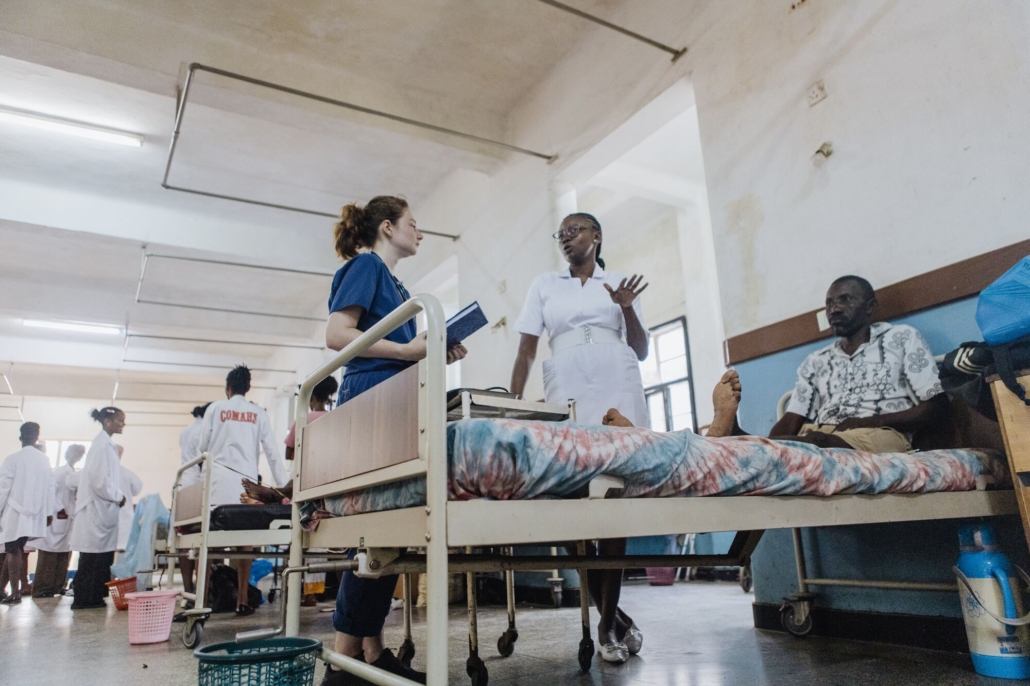
Katie Henderson, mentoring in the ward of Connaught Hospital.
Learning Side by Side
Launched in August 2024, the program is comprised of 4-week intensive training modules for surgical nurses, combining classroom learning with hands-on practical experience.
Katie has eight years of experience in pediatrics and surgical care. Her mentorship is rooted in presence, walking with— not ahead of— her students. She describes the program as “working alongside local nurses, guiding them, and talking through best practices.” With an emphasis on collaboration rather than being prescriptive, the program aims to emphasize partnership and shared learning.
“We mentor about six to eight nurses at a time for four weeks. We start in the classroom learning the theory, and then we go on to the wards and learn together. I work alongside them, guide them, and support them in their everyday practices,” Katie explained.
Each module begins with two theory sessions where nurses develop their nursing and surgical knowledge, practice skills, and participate in discussions covering topics such as patient assessment, infection prevention, wound care, and specific surgical specialties like plastics, orthopedics, and pediatric surgeries.
Throughout the week, that knowledge is brought to life in the wards. Katie joins the nurses around real patients, going over and applying the skills they discussed in the lectures such as post operative care, pain management, and infection control.
Each training cycle includes not just lectures and ward rounds but also simulation days for practicing real-life scenarios. Top-performing nurses—typically three or four per cohort—are invited to continue training aboard the Global Mercy for further learning.
Planting Seeds for the Future
The program’s primary goal is to empower nurses to deliver high-quality, compassionate care while fostering leadership and resilience. Katie emphasized the long-term vision:
“We want to build a workforce of surgical providers that can continue into the future. Once Mercy Ships leaves, we want the healthcare system to be in a better place than before.”
By focusing on nurses who are the largest workforce in the hospital, the program attempts to address areas that could have a ripple effect across the entire patient journey.
“Nurses are involved at every stage of a patient’s journey. By improving their skills, we improve the standard of care for everyone.”
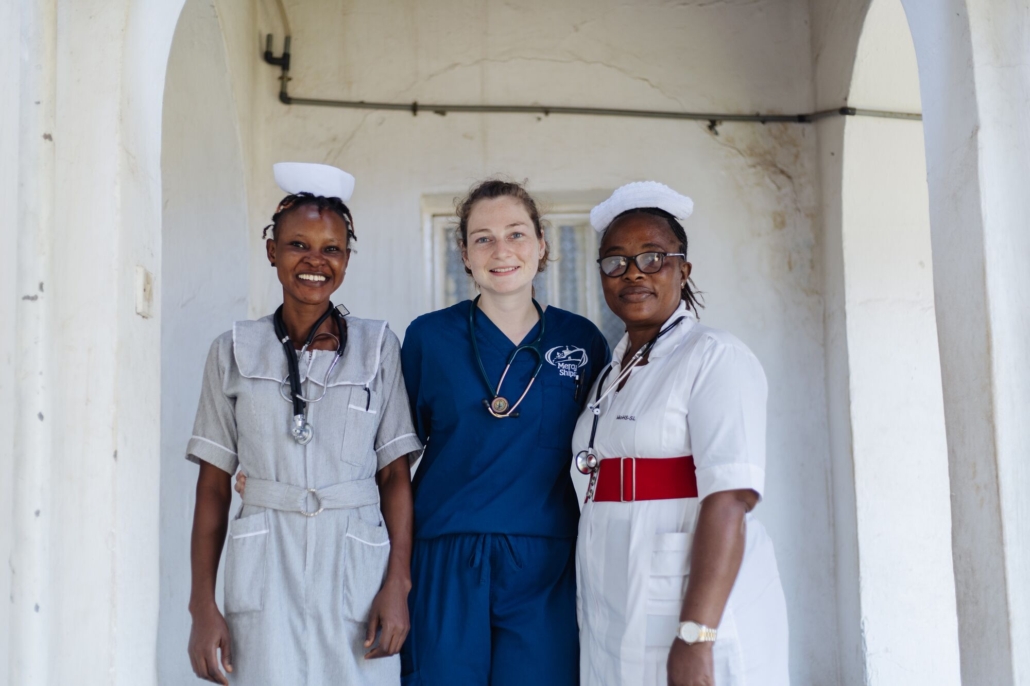
Betty Koker, ETA participant, and Katie Henderson, at Connaught Hospital.
Successful Together
Among the standout nurses in the program is Betty Koker, whose passion for nursing was born from a personal tragedy. After losing her mother in childbirth—a loss she attributes to negligent care—Betty vowed to become a nurse who would do better. “I wanted to help people, especially children, so they wouldn’t have to grow up as orphans like I did,” she shared.
Betty embraced every part of the mentorship program.
Katie recalls seeing her stay late after shifts to practice new techniques and engage with her peers, “Betty was always keen to learn, staying beyond her shifts to practice. She now educates her colleagues, saying, ‘This is how we do it at Mercy Ships.’ Seeing her confidently ease a nervous patient’s worries before surgery was a proud moment,” she explained.
Betty’s dedication paid off. She was selected to continue her training aboard the Global Mercy, where she thrived working with volunteer hospital staff in a fast-paced environment, practicing orthopedic rehabilitation techniques, refining assessment skills, and gaining exposure to emergency simulations.
But the most impactful changes are the ones happening back on the ground. Betty and her fellow nurses have taken what they’ve learned and are actively transforming their community. Katie beams as she remembers a group of nurses who took the initiative to clean and reorganize a neglected ward room.
“They were so excited to show me their work,” Katie said. “It was something they initiated themselves, and their pride was contagious. That’s why I love this job—seeing nurses take ownership and improve their environment.”
These moments make the mentorship program meaningful; not just the transfer of clinical skills, but a shift in ownership, identity, and hope. Programs like these ensure that Mercy Ships is doing more than just addressing surgical needs alone. It provides skills development for nurses in Africa to be able to provide quality care and help strengthen the healthcare system in their countries for future generations.
ETA programs build up healthcare professionals who will serve their communities for generations. Your support can fuel transformation that goes beyond the ships. Be part of the legacy — get involved with Mercy Ships.

